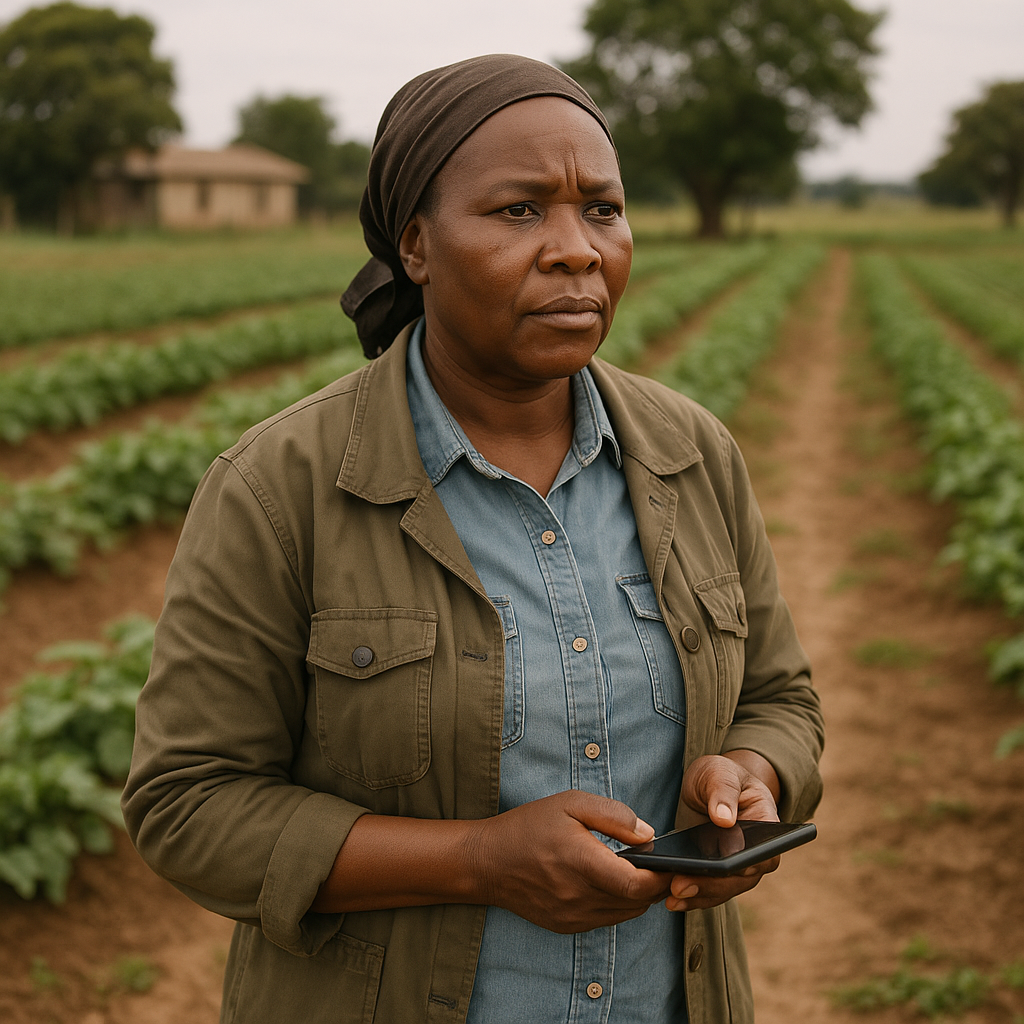Financial inclusion and digital innovation key to empowering rural women agripreneurs
National strategies, including South Africa’s National Development Plan (NDP) 2030 and the Eastern Cape Rural Development Strategy, emphasize gender inclusion as a core priority. However, the research highlights a persistent gap between policy rhetoric and practical implementation.

The path to economic empowerment for rural women hinges on inclusive financial systems that address entrenched gender disparities, according to a groundbreaking study published in Administrative Sciences. The paper, “Empowering Rural Women Agripreneurs Through Financial Inclusion: Lessons from South Africa for the G20 Development Agenda,” highlights how targeted policies, equitable access to finance, and digital innovations can transform the prospects of women agripreneurs while offering lessons for the global G20 development framework.
Based on a comprehensive literature review spanning 2018 to 2024 and a focused case study of the Citrus Growers Association–Grower Development Company (CGA–GDC) partnership in South Africa’s Eastern Cape Province, the research uncovers systemic barriers that hinder rural women’s full participation in agribusiness. The findings underscore the urgent need for structural reform to create a more inclusive and sustainable agricultural economy.
Structural barriers hindering women’s participation
The study identifies persistent gaps in public–private partnerships that limit opportunities for rural women agripreneurs. Despite notable gains from initiatives like the CGA–GDC, which have provided improved access to markets, infrastructure, and technical training, women remain underrepresented in decision-making and ownership roles.
In many rural communities, insecure land tenure continues to lock women out of formal credit markets. Without secure title deeds, female farmers cannot use their land as collateral, significantly restricting their ability to access institutional loans or participate in scalable agribusiness ventures. This challenge is compounded by male-dominated governance structures within cooperatives and partnerships, where women are often excluded from strategic leadership positions and relegated to support-level roles.
The research also points to gaps in post-training support. Many programs deliver initial training but lack sustained mentorship and follow-up mechanisms, leaving women without the practical guidance needed to grow their businesses or integrate advanced technologies effectively. Informal savings mechanisms, such as stokvels, remain common among women agripreneurs, but these systems lack scalability and are rarely recognized by formal financial institutions, limiting their utility for larger investments or growth initiatives.
Disconnect between policies and on-the-ground realities
National strategies, including South Africa’s National Development Plan (NDP) 2030 and the Eastern Cape Rural Development Strategy, emphasize gender inclusion as a core priority. However, the research highlights a persistent gap between policy rhetoric and practical implementation.
One critical issue is the absence of gender-disaggregated data in monitoring and evaluation systems. Without detailed, reliable data on women’s participation and economic outcomes, policymakers lack the insights needed to design effective interventions or assess the success of existing programs.
Additionally, the enforcement of gender equity mandates in cooperatives and public–private partnerships remains weak. The lack of accountability mechanisms and oversight allows systemic inequities to persist, undermining national and provincial objectives for inclusive rural development.
Communication barriers further exacerbate the problem. In many rural areas, women are poorly informed about available financial services, eligibility requirements, or training opportunities. This information gap limits their ability to access resources that could help them expand their businesses or engage in value chains beyond local markets.
Global insights and practical recommendations
Drawing lessons from global experiences in countries such as Kenya, India, and parts of West Africa, the study demonstrates how targeted digital finance solutions and inclusive cooperative models can deliver measurable improvements in women’s financial participation. Digital wallets, mobile banking platforms, and fintech applications designed specifically for rural populations have proven to be transformative tools in bridging access gaps when paired with digital literacy initiatives.
The authors propose a set of seven evidence-based policy actions to close the inclusion gap and drive gender-equitable growth in rural agribusiness:
-
Gender-Disaggregated Data Systems: Mandate systematic collection and analysis of participation and performance data for women in agribusiness programs.
-
Expansion of Women-Led Cooperatives: Support and formalize women-led savings and cooperative platforms to provide structured access to credit and market linkages.
-
Land Tenure Reform: Secure legal recognition of women’s land rights to enable the use of land as collateral for financial products.
-
Mandatory Gender Quotas: Enforce quotas and mentorship pipelines to ensure women occupy leadership and decision-making positions within cooperatives and partnerships.
-
Participatory Training Programs: Co-design training initiatives with women to ensure content is relevant, accessible, and culturally appropriate.
-
Promotion of Digital Finance Tools: Develop user-friendly, multilingual mobile applications to enhance access to formal financial services for rural women.
-
Policy Alignment and Monitoring: Integrate gender-sensitive metrics within national frameworks to track progress and hold stakeholders accountable.
These recommendations are not only relevant to South Africa but also provide a blueprint for countries in the Global South seeking to align rural development strategies with G20 principles of inclusive and sustainable growth.
- FIRST PUBLISHED IN:
- Devdiscourse










